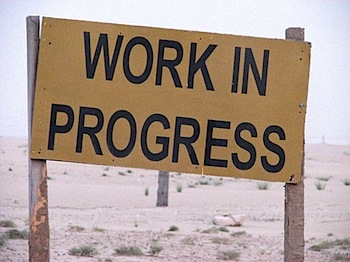Charles Siburt has been a friend and mentor to me for almost 25 years. I have learned so much from him. I am a much better man and minister for having known him.
![Siburt_creative_serv_thumb[1] (1).jpg](http://godhungry.org/wp-content/uploads/2012/01/Siburt_creative_serv_thumb1-1.jpg)
For many years he taught ministry at Abilene Christian University. His teaching went way beyond the classroom. Charles spent time and energy helping ministers and other church leaders all over the country.
He is very sick and is not expected to live on this earth much longer. He has recently been transported from a hospital in Dallas to a hospital in Abilene. Soon he will be with the Lord.
My friend, Dan Bouchelle, wrote the following:On behalf of all of us who love Charlie, I invite you to join several of us who love the Siburts by setting aside this Friday, February 3, as a special day of prayer with fasting if you choose. Please lift up Charlie’s body, his spirit, and his family to the Father of all compassion. Judy and his sons have sacrificed time with Charlie for the sake of the church for many years. Pray that their final days with him in this age will be enriching. Pray that God will give Charlie courage for his final days and a peaceful trip home. Pray that he will be able to leave the hospital for his final days. Most of all, give thanks for all that God has given us all through Charlie. Pray that God will raise up an Elisha or twelve to pick up Charlie’s mantle. What will we do without him?
Charles and Judy have blessed so many men and women. Charles served as a consultant and friend to the congregations I worked with in Florence, Alabama, Kansas City, Missouri, and Waco, Texas. Each time he helped our leaders become more effective and at times work through knotty problems. I have called him at all hours of the day and evening to talk through frustrations, disappointments and new possibilities. Again and again, Charles helped me become better.
The following are a few of the ways he helped me:
1. He was one of the first ministers to introduce me to serious, thoughtful ministry resources. At one of the very first Austin Graduate School Sermon Seminars, I heard him share resources with the group. (I was in graduate school at ACU.) I was furiously taking notes as he mentioned authors, commentaries, journals, and training opportunities – related to ministry. I went back to ACU and followed up on as many resources as I could.
2. He taught me about the importance of managing myself well. I have spent the last three decades learning about the implications of this. It was Charles Siburt who instilled in me the importance of self-care and being intentional about how I handle myself as a leader.
3. He helped me in each congregation I have served. Each time he came, he helped our church and blessed Charlotte and me.
4. He told me again and again, in a variety of way is how much he believed in me. I can’t begin to tell you how much his confidence in me has meant. He recommended me to churches and universities and gave me other opportunities to serve. There were times when I called him when I felt discouraged and devalued. He always communicated value, encouragement, and hope.
5. He made himself available and accessible to me. He returned my calls from airports, his office, hotel rooms, and during breaks at out of town conferences. We shared lunches and met in his office on various occasions. The time and energy he invested in me made a difference. So often his words gave me fresh options and a new perspective. What I experienced with him, I now practice with younger ministers.
6. He helped me see the importance of paying attention to the details of others’ lives. So often, I came away from conversations with him amazed at how well he remembered details – children’s names, where they went to college – where an elder worked, on and on. I saw how that practice communicated much to others.
7. He modeled for me a way of being a father. Year ago, I was in his office when he received a call from Judy. He asked about one of the boys and a situation at school (high school, I think). He asked about the situation and mentioned a variety of details related to it. He talked for a moment about how their son was handling it. I came away thinking about how I wanted to be involved and aware like that still when my daughters were that age.
Please especially pray for Charles and Judy on Friday, February 3. For more information, please see this fine post by Dan Bouchelle here. Read Jordan Hubbard’s tribute here. Also note this special Facebook page for Charles and Judy here.





![Siburt_creative_serv_thumb[1] (1).jpg](http://godhungry.org/wp-content/uploads/2012/01/Siburt_creative_serv_thumb1-1.jpg)

